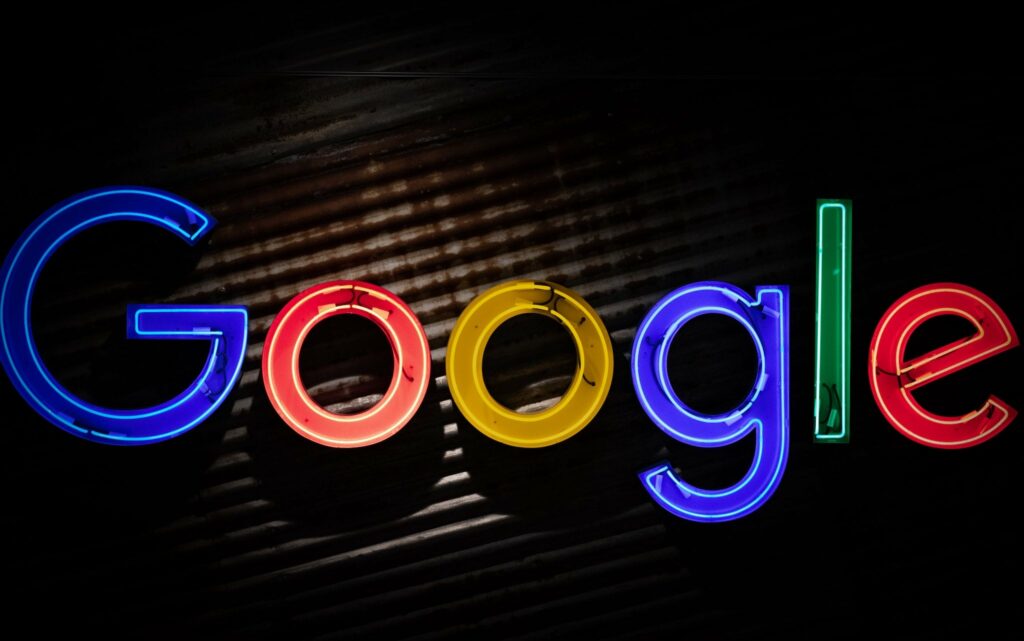The end of the nation-state era

At the turn of the century, James Dale Davidson and William Rees-Mogg published “The Sovereign Individual“. That book predicted a future where, thanks to technology, individuals will have enough power to break free from the dependence of their nation-states.
The Sovereign Individual accurately predicted many of the breakthroughs of the early XXI century, including the digital nomad movement, the appearance of cryptocurrencies, and the progressive disintegration and fall into irrelevance of the concept of nation.
In the future they describe, a steadily increasing number of individuals will claim sovereignty of their lives, becoming the owners of their own destinies, to the dismay of governments, which will try to keep then under control by all means.
The awakening of the individual sovereignty
It is amazing how accurate the predictions of that book are, even before Facebook or smartphones were a thing. The question that I want to pose here is how that future will unfold as we delve into the XXI century.
We live in times of unprecedented freedom and individual authority over our fate. The fact that I can decide where to live, and that I can run my business online, means I can decide what country, city, or corner of the world offers me the best standard of living, and where I want to go next. We are not tied to a country anymore. Our place of birth is no longer a death sentence.
Even though usually taken for granted, the implications are mind-blowing. I can live in Bansko, Chiang Mai, or Kuching, and work as a freelancer for an American company, earning enough in a month to live comfortably the whole year. We are not tied to a gray office anymore, wasting our time there (as opposed to working) under the scrutiny of a boss whose idea of productivity is time spent in front of the screen.
Cryptocurrencies, sharing economy, and online banking
Bitcoin was one of many reactions to the financial crisis of 2007-2008. The advent of decentralized financial systems that are not controlled or regulated by any state is also a consequence of this push for freedom and detachment from centralized power, but it’s also a quest for a more fair economic model where the brutal force of raw democracy and market interests dictate the value of one’s wealth.
Cryptocurrency is, no doubt, the most relevant of all the innovations disrupting the social and economic fabric of nation-states. One of the most important points of control of the nation-state paradigm of the XX century is wealth. If they can administer not only the access to money of their citizens, but the value of that money, and the institutions that issue and handle it, they have direct control over every individual. Cryptocurrencies represent a new form of wealth that’s global, digital, unrestrained, and free. The fact that the worlds of fiat and cryptocurrency have collided means crypto assets have real value governments have no influence over.
Sharing economy is another step in that direction. A way of circumventing an obsolete financial framework that worked for the XX century, especially for the decades right after World War II, where our economies and legislations were still based on the precepts of the industrial age.
Just a decade ago, if you wanted to rent a room in your house or charge some money to someone for riding them somewhere, it was perfectly normal and accepted. The government won’t ask you to declare your house a tourist apartment and get a license for that. Same with your car. Now, when a critical mass of citizens starts doing the same, because there is a technological platform that allows them to do it easily, it’s when governments get scared. They lose their grip on their citizens, and if they cannot control them, at least they want their piece of the pie.
This sometimes leads to legislation which fails to understand the new precepts of sharing economy. Years into the digital era, an effort has not been made to understand the new challenges of these new emerging social contracts.
Online banking platforms are yet another example of how technology can liberate an individual from the limitations of their state and institutions, both public and private. In countries such as Ukraine, the government exercises tight control over the finances of their citizens through banking institutions. An online platform that allows anybody to open a bank account online and get a card accepted in any ATM means these citizens are now in charge of their money.
It’s no wonder governments see all these movements, and many others, as existential threats. They used to have exclusive rights over services that now are starting to be offered by the information society. Every little new technological product allowing someone to do one of these things without the intervention, permission, or acquiescence of the government feels like sand grains escaping from their hands.

The individual responsibility
Fitter, happier, more productive
Radiohead, “Fitter, happier”.
Comfortable (not drinking too much)
Regular exercise at the gym (3 days a week)
Getting on better with your associate employee contemporaries
[…]
Concerned (but powerless)
Individual sovereignty implies individual responsibility too. The individual is no longer trapped in a father-child relationship with the state. We are adults now, not just in age, but in bargaining power. There is no patronizing government giving you “everything you need” as long as you follow the rules and stay, as Radiohead said, “concerned, but powerless”.
We don’t need our governments to provide us with services such social security, pension, banking institutions, financial stability or safety anymore. Much like comparing a Uber ride with a traditional taxi, there are better, more convenient, and more beneficial alternatives right now. My health insurance plan covers me around the globe. My online bank allows me to open a new balance in a new currency instantly upon arriving to a country. I can exchange my crypto-assets and get fiat money any time I want, anywhere, with the same exchange rate wherever I am. I am no longer tied to a physical address and expected to stay local while the rest of the world goes global.
As empowered individuals, we learn to be responsible. We need to save enough money for our retirement because we don’t trust that any government will be able to provide us with a good pension scheme when we get older. We need to be careful with our finances, and learn to be the guardians of our wealth. We need to have private health insurance. Overall, we become more conscious, mature people.
The disintegration of nation-states
When citizens understand that they don’t need their nations anymore and that states are like service providers, we also realize that we don’t need to stick to the one we are using right now. That’s a worrisome thought for many governments. Our societies have been built in the dogma of this parental relationship. In other words, a nation needs its children to stay producing, consuming, and complying.
The problem is that nation-states are not adapting to the changes of the information society. With few exceptions (Estonia and its digital nation being one of them), they are reacting to them. And their reaction is usually an aggressive (and even violent at times) one.
I previously mentioned the cases of Uber and Airbnb. The problem with the government models we have inherited from the XX century is that they don’t understand technology. They missed the evolution into the information society. They are still thinking in terms of the industrial revolution, such as labor, inheritance, taxmen, working hours, employee roles, centralized archives, and geographical limitations. In simple terms, they usually only react to a specific innovation when it jeopardizes their tax revenue.
However, according to Thomas Piketty, author of Capital in the 21st Century, the XXI century will see all countries lowering their taxes to compete in an eventually more globalized world. That is a concerning fact when contrasted with the conclusions from Davidson and Rees-Mog’s work.
As could not be otherwise, technology is acting as a disrupting force again. It moves faster than our democracies. Much, much faster. Our current societal models, inherited from the XX century, will progressively fall apart when faced with the incoming innovations of the information era.

The era of inequality
Ironically, all that freedom and sovereignty at our fingertips is not enjoyed by everybody. If anything, our societies are becoming extremely polarized in terms of access to wealth, resources, education, and opportunities. As Piketty describes in Capital in the 21st century, inequality is steadily and inexorably growing. Probably, it will reach the same levels during the course of the next decades that it had during the Belle Époque in France and other parts of Europe, where the top decile of the population (10%) owned 90% of the wealth.
We’re almost there. Inequality is extremely high right now in most western nations, especially in the US. Apart from the mere inequality of capital, and the fact that the bottom 50% of the population owns virtually no capital, you have an increasingly important wage inequality. As a recent example, in my home country, Spain, the salary of the president of the Acciona company in 2020 was 36,61 million euros [Google translation]. This rise of supermanagers (as Piketty calls them) is increasing the gap between social classes.
The kings and queens of the past, the wealthy renters and bond-owners of the Belle Époque, are now the top executives, politicians, CEOs, and royal families. There is a symbolic middle class, but it is ultimately as powerless and as incapable of effecting real change as the bottom group. They live slightly better, but that’s all.
Technology has the potential of stopping or even reversing this relentless growth of inequality, but it can also make it worse. Unfortunately, the conclusion of most authors is that the latter is more probable than the former.
What’s next?
So what’s next? Will the end of the nation-state era mean a new resurgence of city-states? Davidson and Rees-Mog predicted, and I think it is an accurate prediction, that this is indeed a possible outcome. We are already seeing how small nations, those with more adaptable and flexible governments and laws, are thriving in our information society (i.e: Estonia) while others are issuing bans, restricting the freedom of their citizens, and using legislation like a rabid dog biting desperately in all directions.
We need a new model of society. One that understands the technological innovations and challenges of the XXI century. And if we don’t want this society to become a dystopia, we need it to be sharply different from not only the latest evolution of capitalism after the turn of the century, but also from failed models from the XX century such as Communism, Socialism, or Fascism.
Unfortunately, the future direction of our society looks neither promising nor particularly bright. On the one hand, you have those proposing changes that will bring us close to the past, such as Yanis Varoufakis’ anachronic defense of a democratized, sweetened version of Marxism. Even though he mentions the fact that robotization and automation have changed our societies, he stills sticks to a political theory rooted in the existence of a working-class as the focal point of the society, when we should indeed go in the opposite direction. We should strive for a technologically empowered society where we are free from the chains of labor and the fear of poverty. A John Maynard Keynes’ society on steroids, if you like.
But I concede this point to Mr. Varoufakis: democracy and capitalism cannot go on separate paths. More specifically, democracy cannot allow capitalism free reign over our societies, because it will end up devouring democracy itself. As a very recent example, Google is threatening a whole country such as Australia to dissuade it from enacting a bill that would be detrimental for the interests of the tech giant.
We have seen other attempts from big tech firms (especially Google, Amazon, and Facebook) to influence the governments, societies, and democratic processes of many countries, but this is perhaps the most bullying and the most worrisome one so far. A future where access to information is controlled by tech firms and political decisions are ultimately dictated by corporations or economic interests is not a humanist future, and it’s definitely one that’s disastrous for our sovereignty as individuals.
Conclusion
The XXI century is going to bring important changes in our societies and governments. Will the disrupting power of technology mean the end of the nation-state paradigm as we know it?




Comments ()